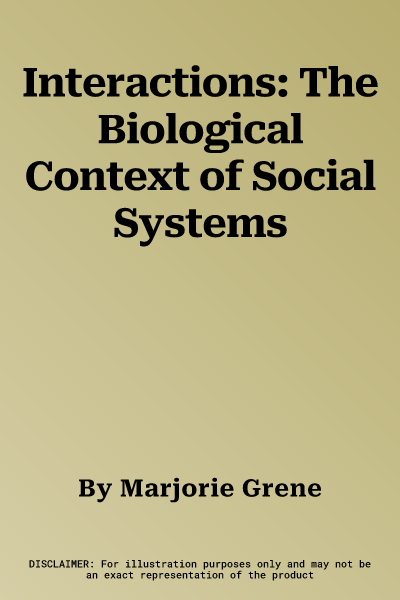Marjorie Grene
(Author)Interactions: The Biological Context of Social SystemsHardcover, 10 September 1992

Qty
1
Turbo
Ships in 2 - 3 days
In Stock
Free Delivery
Cash on Delivery
15 Days
Free Returns
Secure Checkout

Reading Age
Ages: 22
Grade Levels
17
Print Length
242 pages
Language
English
Publisher
Columbia University Press
Date Published
10 Sep 1992
ISBN-10
023107946X
ISBN-13
9780231079464
Description
Product Details
Audience:
Ages: 22
Author:
Book Format:
Hardcover
Country of Origin:
US
Date Published:
10 September 1992
Educational Level:
Grade Levels: 17
ISBN-10:
023107946X
ISBN-13:
9780231079464
Language:
English
Location:
New York
Pages:
242
Publisher: